
National Library Week is a time to celebrate the contributions of our nation's libraries and librarians and to promote library use and support. All types of libraries - school, public, academic and special - participate.
National Library Week will be observed April 7-13, 2024 with the theme, "Ready, Set, Library!"
Most students think of the library as a place to check out books or use technology, but do you know what else your library has to offer? To find out:
Check out your library:
- Head to your school and public library during National Library Week to see what's new and participate in all they have to offer.
Visit your library online:
- If you can’t make it to your libraries, visit their website or social media pages to learn about programs and services offered.
Invite in your librarian:
- Librarians are a wealth of knowledge, about the library itself and all they have to offer. Talk with your librarians to learn more!
Ilovelibraries.org is an initiative of the American Library Association (ALA), designed to keep America informed about what’s happening in today’s libraries.
Learn more about the National Library Week 2023 celebration.
Learn more about the many decades of National Library Week.
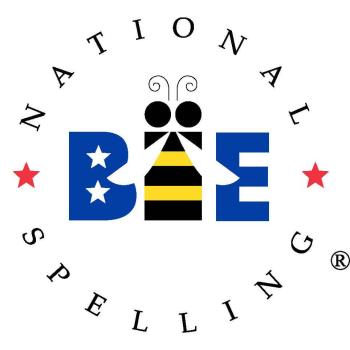
Nine contestants participated in the first National Spelling Bee, sponsored by the Louisville, Kentucky, Courier-Journal in 1925. Now, over 250 student champions, ranging from 9- to 15-years-old, travel to Washington, D.C., to compete in the National Spelling Bee. The competition takes place during May each year. The National Champion receives $28,000 in cash and savings bonds as well as reference resources for his or her home library.
The National Spelling Bee competition has been broadcast nationally on ESPN and during primetime on ABC. In his article "All I Need to Know about Teaching I Learned from TV and Movies," Kenneth Lindbloom compares the competition to shows like Jeopardy. Lindbloom explains, "One might speculate that these events garner interest because they are contests with one winner and many losers. But more difficult contests-Westinghouse science winners, for example, or creative-writing contest winners-don't get the kind of publicity memorizers of trivia get." Ask your students to consider this with the following questions:
- Why do some contests get more publicity than others? What makes the National Spelling Bee interesting to the general public?
- Is the National Spelling Bee a sports event? Why has it been broadcast on ESPN?
- What counts as knowledge on television? What knowledge is seen, and what kinds of knowledge are not seen?
The official homepage for the competition includes details on the student spellers, their sponsors, the rules for the competition, and statistics. During the competition, photos of the events will be added to the site.
By Margaret Y. Phinney, this page from the Natural Child website explains invented spelling and emergent writing and includes suggestions designed to encourage children's writing and use of invented spellings.
This Scholastic website features essays that contain strategies aimed at integrating spelling into the reading and writing curriculum and helping students to improve their spelling skills.
ReadWriteThink's Word Wizard interactive allows students to spell words based on four favorite children's books. Students can read and listen to clues and click the hint button if they're stuck.

As a child growing up in Holland, Leo Lionni taught himself how to draw. He earned a doctorate in economics from the University of Genoa, but began his career as an author and illustrator of children's books in 1959. His first book Little Blue and Little Yellow came from a story written for his grandchildren during a boring train ride. He is the winner of four Caldecott awards.
After reading several of Lionni's stories, play the game Guess the Story. Invite a student to pull a sentence strip that describes one of Lionni's messages from a box. (Older students can create the sentence strips in collaborative groups.) Students should explain what the message means and the book it is from. Some suggested messages include the following:
- Let's work together.
- Take time to smell the roses.
- You are never alone when you have a friend.
- Don't take your family for granted.
- Everybody is special.
- Be happy with who you are.
As a follow-up, have your students write and illustrate their messages with the ReadWriteThink Stapleless Book.
This site gives an excellent introduction to children in grades K through 5 about Leo Lionni’s life, his art work, and his children’s books. The site includes excellent printable activities and videos of Lionni’s art making process.
This packet contains a variety of useful activities made by teachers, for teachers to accompany the Leo Lionni books, as well as original artwork on display at the Castellani Art Museum.
This page provides information about Leo Lionni's life and learns how experiences and events in his life influenced on his work.
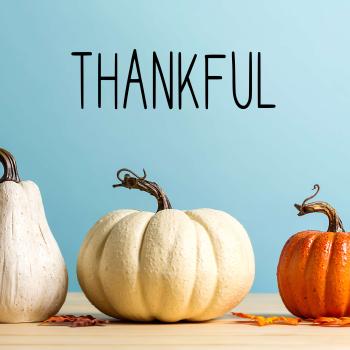
According to the Wampanoag and the ancestors of the Plimoth settlers, no oral or written account confirms that the first Thanksgiving took place between them in 1621. The Wampanoag, and other Native Americans, did participate in daily and seasonal thanksgivings for thousands of years prior to the Pilgrims’ arrival. This process of thanksgiving continues today.
Provide students with a selection of texts about Thanksgiving. Invite students to partner-read their selected books, considering these questions:
-
From whose perspective is the story told?
-
Whose voices are active and passive?
-
What words are used to describe the groups?
-
Whose story has the most detail?
-
What details were offered or implied in the text or illustrations about Thanksgiving and each group’s lifestyle (e.g., food, clothing, beliefs, and traditions)?
-
Are the illustrations accurate? How do you know?
Next, share with students texts that are #OwnVoices. Oyate and American Indians in Children's Literature (AICL) both provide critical analysis of Indigenous peoples in children's and young adult books.
Select one of the #OwnVoice texts to read, like Giving Thanks: A Native American Good Morning Message, a children's picture book, by Chief Jake Swamp. This version of the Iroquois Thanksgiving Address, or Ganohonyohk, is written especially for children who want to know more about Six Nations Iroquois spirituality. The Thanksgiving Address is one of the key speeches of the Six Nations Iroquois.
End the session by allowing students to share "What are some things you are thankful for and where do they come from?"
Oyate is a Native organization working to see that our lives and histories are portrayed with honesty and integrity, and that all people know that our stories belong to us.
American Indians in Children's Literature (AICL) provides critical analysis of Indigenous peoples in children's and young adult books.
The words in this book are based on the Thanksgiving Address, an ancient message of peace and appreciation of Mother Earth and all her inhabitants, that are still spoken at ceremonial and governmental gatherings held by the Six Nations.
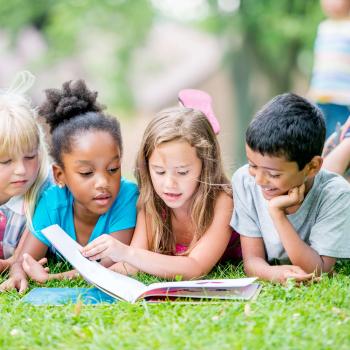
Summer reading is an important component of an overall reading program. Research shows that summer vacation often has a significant negative effect on student learning. Providing opportunities for students to read regularly during the summer can prevent documented reading achievement losses. The bottom line is that students who read during the summer do better in the fall.
A June literacy fair for students and their families is the perfect way to end the school year and get students off on the right track for the summer. In addition to standard carnival fare (face painting, games of chance, etc.), offer a variety of fun literacy-based activities.
- The cost of entrance? Ask students to bring a lightly used book as an entrance pass, to be collected on a table or display. As students leave, each person can select a book to keep from the donations.
- Hold a literary trivia contest, with new, donated books for prizes.
- Invite an author to your school for a book reading/signing event.
- Don't forget to invite families to your event and to include informational material.
This collection of NCTE blog posts is the perfect place to begin looking for summer reading resources. They are full of text suggestions!
Reading Rockets provides ideas to keep kids reading during vacation. There are activities and tips on encouraging children to love reading.
Whether for summer reading or during the school year, these selections will reinvigorate the curriculum and inspire students to forge rich connections to literature and media.
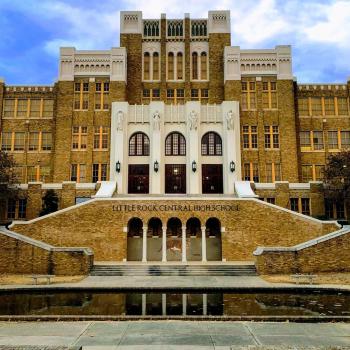
On September 23, 1957, police officers had to be stationed around the Central High School campus to ensure the safety of the Little Rock Nine, a group of nine African American students who were to attend the school and, thus, break the color barrier. The right to an equal education was granted to all African American students by the United States Supreme Court's 1954 decision in Brown v. Board of Education.
Begin by viewing some of the footage from the actual event (you can access some of the footage at the PBS website). Ask students to jot down the thoughts and feelings they think might have been going on in the minds and hearts of the Little Rock Nine. Have students use these notes as the basis for a bio-poem that might have been written by one of the African American students on that historic day.
An alternative activity might be to show students portions of "The Oprah Winfrey Show" that reunited the Little Rock Nine with some of the classmates who threatened and taunted them upon their arrival at Central High School. After viewing each segment, ask students to summarize their reactions to what they have seen and heard on the program. Were they surprised by anything they observed? If so, what surprised them and why?
This site celebrates the 50th anniversary of the integration of Central High School. Links to the historic event are provided, including links to information about the nine African American students who attended the school.
In celebration of the 50th anniversary of the Supreme Court decision that paved the way for the integration of Central High School, NPR compiled an extensive collection of resources, including interviews with Supreme Court Justice Thurgood Marshall.
This Teaching Tolerance page includes resources that focus on primary documents from Brown v. the Board of Education, poetry, arts, and critical thinking. Additional links at the end connect to photographs and more classroom resources.
PBS offers a section on Southern School Desegregation as part of its Eyes on the Prize: American Civil Rights Movement feature.
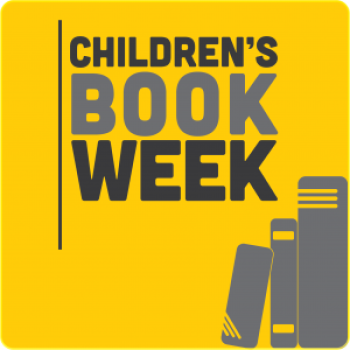
Children's Book Week encourages children to enjoy new authors and books, and is celebrated in schools, libraries, homes, and bookstores during a selected week in May and November. During this event, celebrate children's literature with storytelling, parties, author and illustrator appearances, and other literacy events in your school and community. As part of the celebration, children are invited to help select the top children's book of the year by voting online or at their school or library.
The winners of the Children's Choice book awards will be announced during National Book Week. Before the winners are announced, children across the nation will be able to vote for their favorites. Invite your students to show why their favorite finalist should win by designing a promotional book cover.
- First, have students read Children's Choice finalist books in their grade range. Younger students can read all five finalists, while older students may read fewer.
- Then, ask each student to select his or her favorite finalist and brainstorm reasons why it is so good. Encourage students to consider specific elements, such as characters or plot.
- Next, have students look at their brainstormed lists and select the ideas that could be depicted on the book cover. Challenge each student to design a book cover that will convince others that his or her favorite should win.
- Finally, have students use the Book Cover Creator to create their book covers. They can then display their book covers with the book in a classroom or school display or on a bulletin board.
Access information about this annual event on this site from the Children's Book Council. Included are dates for this event for the next five years, book week materials and information, and more.
Help children find the perfect book with these children's, teachers', and young adults' choices booklists from the International Literacy Association.
This resource from Scholastic provides a collection of suggestions for holding a successful Book Week event in your school.
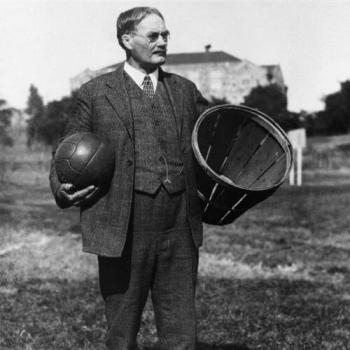
Dr. James Naismith, athletic director of the YMCA in Springfield, MA, had a problem- the cold winters kept everyone indoors. So in 1891, he invented the game of basketball. Players had to throw a soccer ball into a peach basket resting on top of a ten-foot pole. The sport quickly grew in popularity, though amazingly, it took more than ten years for someone to come up with the brilliant idea of cutting a hole in the bottom of the peach baskets!
Looking at the rules of a game allows for a perfect opportunity for students to practice their expository reading and writing skills.
Print out copies of Naismith's original 13 rules for basketball. Put students into groups (since some students know a lot about basketball and some very little) and ask them to read the original rules and to identify-with different colored highlighters-the rules that are still in effect today and the rules that have been changed or eliminated. Then, ask students to write one rule that has been added to the original list and another rule that has been changed dramatically from the original source. Have students present these new and modified rules to the class.
Working individually, students should brainstorm a list of sports and games that they know well. Have students select one from their list and write ten rules for playing that sport or game. Remind students that their audience is people who have never played or heard of that sport or game before. In addition to the ten rules, students should also identify the equipment and time needed to play. Afterward, students should read each other's lists to be sure that all necessary rules are included.
This website includes a biography of Naismith and a section on how the game of basketball has developed over time.
The official name of the Basketball Hall of Fame honors Naismith for his invention of the sport. This website has everything you ever wanted to know about the history and current game of basketball.
This blog post, from the Library of Congress, provides an account about the first college basketball game ever played, as well as Naismith's invention of the game.
This excerpt from a January 31, 1939, broadcast of the radio program "We the People" hosted in New York by Gabriel Heatter is believed to be the only known audio recording of Naismith. In the roughly three-minute clip, Naismith discusses setting up the first basketball game with two peach baskets in a gymnasium at the International YMCA Training School (now Springfield College) in Springfield, Massachusetts in December 1891.